Discover financial empowerment resources
Discover financial empowerment resources
Mariposa is an AI agent built by Credit Canada, the country’s first and longest-standing non-profit credit counselling agency. Access free, 24/7 AI-powered financial advice and get a personalized debt assessment to help you take the next step toward being...
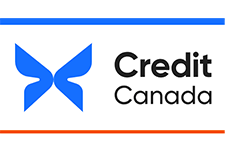
Buy Now Pay Later apps like Klarna and Afterpay have become ubiquitous since the pandemic, allowing users to pay for items in small installments over time instead of footing the bill all at once. But now, some financial experts are sounding the alarm that these easy-to-use apps can lead to...
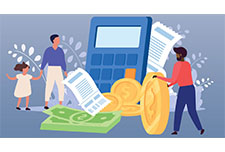
The Dollars Seen Differently podcast breaks down financial topics to make them more accessible for people who are blind, Deafblind or have low vision. Hosted by Ryan Hooey, each episode features a down-to-earth conversation with financial experts, offering practical tips and resources on topics...
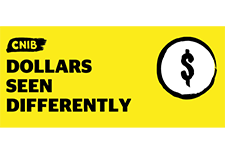
Among the truly urgent crises facing the United States is widespread household financial insecurity. A stunning 51% of U.S. households have expenses that are at least equal to—if not greater than—their income, and 55% lack the necessary savings to weather a simultaneous income drop and expense...

Burnout can happen for many reasons, including being overworked. Dealing with stress can cause problems for your physical and mental health, and your finances. If you’re over-spending or making spontaneous decisions about money to cope with stress, you might be putting your long-term financial...

In the scope of personal finance, individuals often struggle with the decision of whether to pay down debt they’ve accumulated or allocate funds towards investments that will grow for the future. Either choice can make sense, depending on the situation and each individual’s stage of life. In...
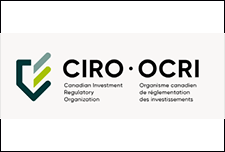
One of the goals of The Money and Pensions Service (MaPS) is to provide better debt advice. While debt advice is available in many different forms, many people who could benefit from debt advice do not seek help. In this study, we sought to better understand the barriers and drivers to people...
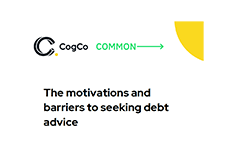
Debt can be a useful financial tool. Loans can help you buy a car or a home. And if you use credit cards, you can sometimes collect other benefits like travel miles or points you can spend. However, too much debt can make it difficult to save money and limit your financial options now and in the...

In time for Financial Literacy Month, the Financial Consumer Agency of Canada has released several resources on their website. Checking up on your progress in managing and paying down debt is an important part of maintaining your overall financial health. This infographic outlines how to...

The weekly themes for Financial Literacy Month 2023 are: Week 1 (November 1-4): Get the pulse on your financial health – What is financial health and why is it important? Week 2 (November 5-11): Check up on your debt – Check up on your progress in managing and paying down debt. Week 3...
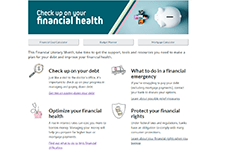
Community organizations play a vital role in supporting people. In these difficult economic times, helping community members strengthen their financial literacy and build their financial resilience is essential for helping them to navigate financial challenges. Building on Financial Consumer...
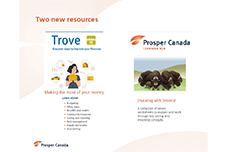
Between the high cost of living and inflation, many of us are struggling with debt. But with financial advice available everywhere - from your uncle’s friend to social media influencers, it can be easy to feel overwhelmed and hard to know whose advice you can trust. Learning some key warning...

Did you know Canadians have the highest level of household debt in the G7? While debt can be useful it can also be stressful. Consider trying some solid strategies to help you tackle your debt and get on firmer financial...

There are many options to deal with debt, but if it sounds too good to be true—it probably is. Ask questions and shop around to avoid paying unnecessary fees. The Office of the Superintendent of Bankruptcy Canada has put together a host of useful tools around debt based on an individual's...

The Office of the Superintendent of Bankruptcy (OSB) is continuing its efforts to help Canadians experiencing serious financial difficulties find the right debt solution. These efforts include increasing consumer awareness about the unregulated Debt Advisory Marketplace and helping consumers...

Managing money is challenging. In the current economic environment, it has become even more difficult. For people living on a low-income, managing the day-to-day expenses, let alone life changes or emergencies, can be overwhelming. Prosper Canada has created an online course that you can share...
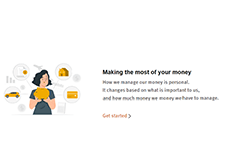
The average Canadian tax return amount in 2023 is $2,072 and that money can go a long way when it comes to meeting your financial goals. But remember, this isn’t a cash windfall; it’s YOUR money that the government borrowed from you, so Credit Canada recommends using it for needs versus...
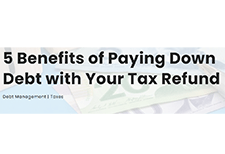
A comprehensive learning program that provides basic information and tools to help adults manage their personal finances and gain the confidence they need to make better financial decisions. Learn more about the program and how to use the learning...

Many of us struggle to talk about money, especially when it comes to talking about debt. It is when debt becomes too much for us to manage, or when we do not have a plan to pay it off, that it can become stressful and even overwhelming. This is when it is time to have those tough conversations and...
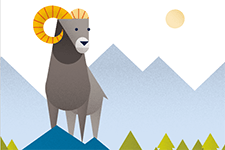
Managing your finances means finding the right balance. Inflation and higher interest rates signal that you may need to adjust your budget to find the right balance between daily spending and paying down debt. The right balance will depend on your financial situation and goals. This selection of...
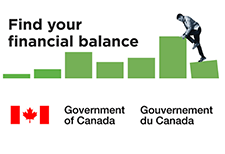
Managing debt doesn't have to be overwhelming. These tips and tools from the Ontario Securities commission can help you borrow wisely and pay off debt more...
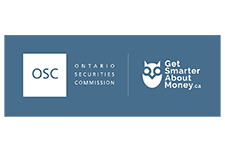
Drive through a low-income neighborhood in virtually any American city and it quickly becomes apparent that the area’s financial health is at risk. The giveaway? The abundance of payday lenders. According to the St. Louis Federal Reserve, there are now more than 20,000 of these organizations...
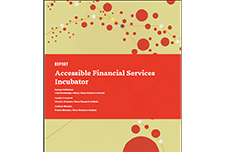
A key component of the Financial Consumer Agency of Canada’s (FCAC’s) mandate is to monitor and evaluate trends and emerging issues that may have an impact on consumers of financial products and services. Technological innovations in financial services and shifting consumer behaviours have...
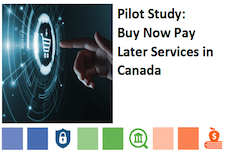
The Thriving or Surviving study uncovers the kitchen table issues that confront Canadians daily, revealing how the country is coping with concerns such as debt, savings, emergency funds and financial...
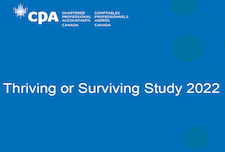
Financial empowerment consists of five complementary strategies including financial literacy and coaching; taxes and access to benefits; safe financial products; savings and asset building; and consumer protection. Empower U serves primarily as a financial literacy and coaching and savings and...

